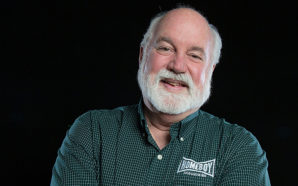Homily for the Solemnity of the Most Holy Trinity
Readings: Proverbs 8:22-31; Psalm 8:4-9; Romans 5:1-5; John 16:12-15
12 June 2022
On this Trinity Sunday, we not only boast in hope of the glory of God. We also boast “of our afflictions, knowing that affliction produces endurance, and endurance, proven character, and proven character, hope, and hope does not disappoint, because the love of God has been poured out into our hearts through the Holy Spirit that has been given to us.”
Preparing for the next phase of our Plenary Council next month, I identify with and stand with particularly the First Australians and those women who continue to experience marginalisation in our church. I hope that in the days ahead, they can find endurance out of their affliction, and that their proven character can engender hope in us all.
LISTEN: https://soundcloud.com/frank-brennan-6/homily-12622
We are now in the final phase of preparation for the Second Assembly of the Plenary Council to be held in Sydney. In the last couple of weeks, the organisers have published a Framework for Motions “which will form the backbone of our reflection, discussion and decision”.
Some plenary council members, as well as many Catholics who are not members of the Plenary Council, have expressed concerns about the lack of transparency in the process for the preparation of this document. Whatever the deficiencies of process, let’s hope that the document provides the focus for true discernment about the issues confronting our church.
I am one of the periti, or so called theological experts, appointed to the Plenary Council. I do not claim to be privy to the whole process adopted in the months since the first session of the Plenary Council held last October and leading up to the preparation of this Framework. And it is not for me to be agitating publicly for or against a vote on any particular draft motion put forward in the Framework.
Over the summer, I was privileged to participate in two of the four working groups which provided input for the working document issued to Plenary Council members in February. Comparing the unpublished February document and published May document, I am pleased to see that the major recommendations proposed by the National Aboriginal and Torres Strait Islander Catholic Council have made it through all stages, maintaining their challenging edge. That’s quite an achievement. It remains to be seen how their recommendations fare on the floor of the Plenary Council. It is, of course , easy for us to give notional assent to the Uluru Statement from the Heart without doing the hard work needed to craft a constitutional amendment attractive both to the Indigenous leadership and the elected members of the more conservative political parties. If we’re serious about constitutional change, we all have a lot of work to do. Remember, our Constitution cannot be changed by our politicians. It can be changed only by all of us voting in resounding numbers for the proposed change. In the past, Labor governments have proposed 25 referenda questions, and only one of those ever succeeded.
It is noteworthy that a couple of suggestions with edge in relation to the ministry of women which made it through to the February document have fallen by the wayside in the May document, dulling the edge on the motions which might then be considered.
I will highlight the two main casualties.
The May document proposes that the Plenary Council commit “the Church in Australia to overcoming the impact of the assumptions that lead to inequality, and to enhancing the role of women in the Church”. This will involve:
- “women engaged in ministry sharing their experiences and reflections on women’s ministry with our bishops, and reporting to Pope Francis’ reconstituted Study Commission on the Female Diaconate;” and
- “considering women for ministry as deacon – should Pope Francis authorise such ministry in light of the findings of the reconstituted Study Commission on the Female Diaconate”.[1]
Speaking of further work to be explored after the second session of the Plenary Council, the unpublished February document circulated only to Plenary Council members noted: “Pope Francis has said that ‘it can prove especially divisive if sacramental power is too closely identified with power in general.’ It is a matter for further discernment for our bishops to ensure that those men with deliberative votes are duly attentive to the women with consultative votes when considering matters which impact especially on women. They who take decisions need to ensure that decision-making is not confined only to those who exercise sacramental power.”
It would seem that the men with deliberative votes have seen no need to maintain this reminder in the foundational document. Let’s hope it has been heeded.
The one suggestion which fell completely by the wayside, presumably at the May meeting of the Australian Catholic Bishops Conference, was: “Attentive to the abiding gift of God’s Spirit which nurtures equality and mutuality, our bishops should continue to review the universal teaching of the Church which precludes women from the papacy, the episcopacy and priesthood.”[2]
It would seem that the Plenary Council is being steered away from any attempt to have the council or the Australian bishops contribute to a respectful and learned review of the church teaching prohibiting the priestly ordination of women. We are not even to have the discussion. We are not even to discuss whether or not it would be right and proper for us as 21st Century Catholics to have the discussion.
At Vatican II, the bishops once assembled rejected out of hand many of the curial draft documents which were designed to ensure business as usual and to avoid debate of the development of doctrine and church discipline. I hope and pray that this forthcoming session of the Plenary Council will endorse a need for an ongoing discussion about women’s ordination. At the very least, we are entitled to a 21st Century explanation as to why women cannot be priests.
I have often said that my nieces have known a country where there has been a woman Prime Minister, a woman Governor General and a woman chief justice. That was almost unimaginable to my mother’s generation when they were young. We have just come through a federal election where it has become manifest in Australian public life that even major political parties are at risk if they are not attentive to the voices of women and if they are not placing women in positions of leadership in those parties.
It is all very well for the latest document to acknowledge that “the attention of the Plenary Council has been drawn frequently to the task that remains, especially regarding women’s participation in leadership and governance structures. Authentic witness to the equal dignity of all baptised persons requires addressing issues of power imbalance, decision-making, authority and agency.”
I don’t see how this can be done any longer by insisting that the matter of women’s ordination cannot even be discussed. We are being called to be attentive to the voice of the Spirit.
Preparing for the second session of our Plenary Council, let us pray, as men and women of the Church:
Creating and Redeeming God,
beneath the Southern Cross and in its light
you have called together a people for Christ
among the many peoples of this land;
you have made us new in the image of Jesus, your beloved Son,
and breathed into us the Spirit of sons and daughters of God.
….
Teach us to read the sign of the times in the light of the Gospel,
with deep listening and patient discernment,
and send your Spirit to lead us into all truth,
that the journey of the Fifth Plenary Council
may strengthen the participation and communion
of all members of the Church in this land,
and raise up a living witness to your presence
among all peoples and through all creation.
May our afflictions produce endurance, and our endurance, proven character, and our proven character, hope, – the hope that does not disappoint, because the love of God has been poured out into our hearts through the Holy Spirit that has been given to us on this Trinity Sunday.
Fr Frank Brennan SJ is the Rector of Newman College, Melbourne, and the former CEO of Catholic Social Services Australia (CSSA). He has been appointed a peritus at the Fifth Plenary Council of the Australian Catholic Church.
[1] Plenary Council, Framework for Motions, May 2022, p.18
[2]Plenary Council, Towards The Second Assembly: A Working Document For Members, 28 February 2022, pp. 12-13, available at https://drive.google.com/file/d/1EiQBQV8U8-T5DemhN1TY-WSlT4uSzy-v/view








